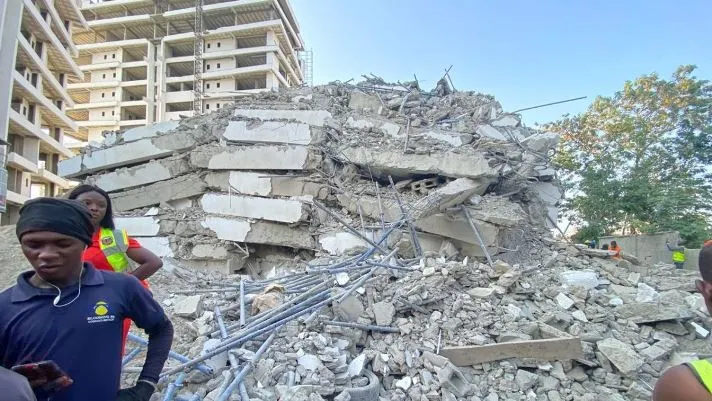Building collapse: Professionals not culpable
Sadly, it’s a time in Nigeria when building collapse has become a recurring decimal, painful due to the loss of lives involved and the negative impact on the families of loved ones and the nation’s economy. However, it is worthy of note that seasoned professionals are not culpable for the menace of building collapse in […]

Sadly, it’s a time in Nigeria when building collapse has become a recurring decimal, painful due to the loss of lives involved and the negative impact on the families of loved ones and the nation’s economy.
However, it is worthy of note that seasoned professionals are not culpable for the menace of building collapse in the country.
You don’t see professionals involved when structures collapse.
The site project/information board is always erected on site with the names and registration/licence numbers of professionals and firms/teams of consultants engaged in the project, and they know that if anything goes wrong, they would be liable and their licences were withdrawn.
Buhari renews two federal appointments
Buhari renews two federal appointments
The architecture profession and indeed the building industry is very regulated. When buildings collapse, professionals are not involved, and that is the truth.
When you have quacks, then you have sharp practices going on.
Professionals’ years of training will not allow them to do what is unethical, or against the code of conduct and ethics of the profession.
Why didn’t the Central Bank of Nigeria HQ building in Abuja collapse, the AFDB building, FIRS or NNPC buildings collapse?
Professionals don’t do what they are not supposed to do; we are guided by codes of conduct, so the time is ripe for us to do the right thing in order to curb this menace of building collapse.
Therefore, the communique from discussions at the recently held Nigerian Institute of Building (NIOB) FCT chapter’s 2023 AGM and conference should be well-researched and published for the benefit of the public, professionals and the government.
Yes, concrete is widely used in the construction industry in Nigeria because of its strength, durability and versatility.
As professionals in the built environment, there is a need to explore the use of alternate building materials readily available in the country for the construction industry.
The government needs willpower and collaboration with the seven allied professional bodies in the built environment and the various regulatory bodies to ensure this.
The time to do this is now.
Arc. Yemi Sola-Adebiyi FNIA, chair, Nigerian Institute of Architects, Abuja chapter
